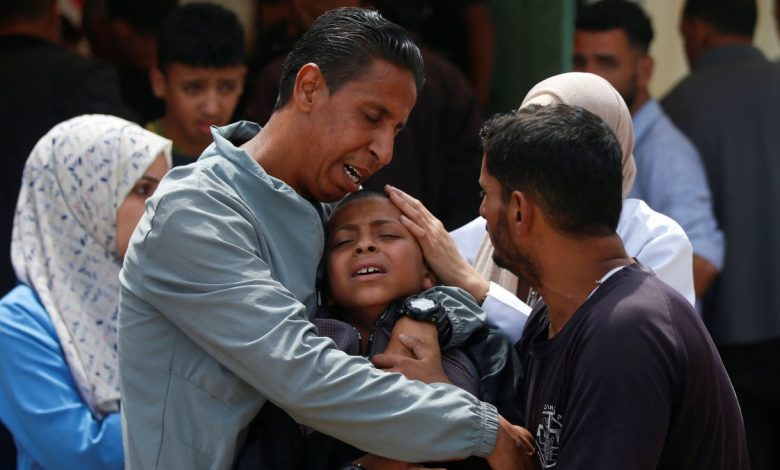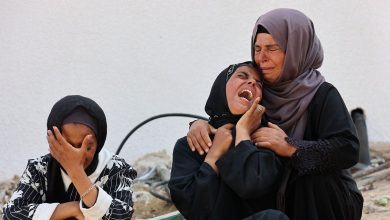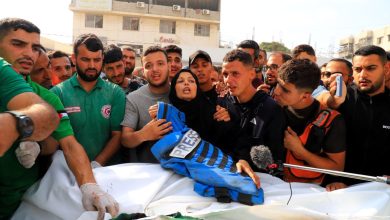Israeli strikes on Gaza kill 20 as Trump wraps up Mideast tour

Israeli airstrikes killed at least 20 people in Gaza on Friday morning, as U.S. President Donald Trump wrapped up his Middle East visit.
An Associated Press (AP) journalist counted the bodies at the Indonesian Hospital in northern Gaza, where they were brought.
Survivors said many others remained trapped under the rubble.
The strikes, which pounded several areas across northern Gaza, coincided with the end of Trump’s tour of Gulf states – a trip that notably excluded a stop in Israel.
Hopes had been high that Trump’s visit might lead to a cease-fire or the resumption of humanitarian aid to Gaza, where an Israeli blockade has entered its third month.
The Israeli military had no immediate comment on the strikes.
The bombardment lasted into the morning hours on Friday, sending people fleeing from the Jabaliya refugee camp and the town of Beit Lahiya.
It followed days of similar attacks that killed more than 130 people, according to Gaza’s Health Ministry.
Israeli Prime Minister Benjamin Netanyahu vowed earlier in the week to push ahead with a promised escalation of force in Israel’s war in the Gaza Strip, aiming to destroy the Hamas group that governs Gaza.
In comments released by Netanyahu’s office Tuesday, the prime minister said Israeli forces were “days away” from entering Gaza “with great strength to complete the mission. … It means destroying Hamas.”
It was unclear if Friday’s bombardment marked the beginning of that operation.
The war began following Hamas’ Oct. 7, 2023, incursion on southern Israel that killed 1,200 people.
Israel’s retaliatory offensive has killed more than 53,000 Palestinians – many of them women and children – according to Gaza’s Health Ministry.
Nearly 3,000 people have been killed since Israel broke a cease-fire on March 18, the ministry said.
Hamas still holds 58 of the roughly 250 hostages it took during the Oct. 7 attack.
The attacks come as Israel continues a blockade of Gaza, now in its third month, preventing food, fuel, medicine and other supplies from entering the territory, worsening the humanitarian crisis.
Israel says the blockade is intended to pressure Hamas to release the hostages and will remain until a system is in place that allows it to control aid distribution.
Earlier this week, a new humanitarian organization backed by the U.S. said it expects to begin operations before the end of the month – following what it described as key agreements with Israeli officials.
A statement from the group, the Gaza Humanitarian Foundation, identified several U.S. military veterans, former humanitarian coordinators and security contractors who will lead the delivery effort.
Many in the humanitarian community, including the United Nations, said the proposed system does not align with humanitarian principles, will be unable to meet the needs of Palestinians in Gaza and that they will not participate in it.






